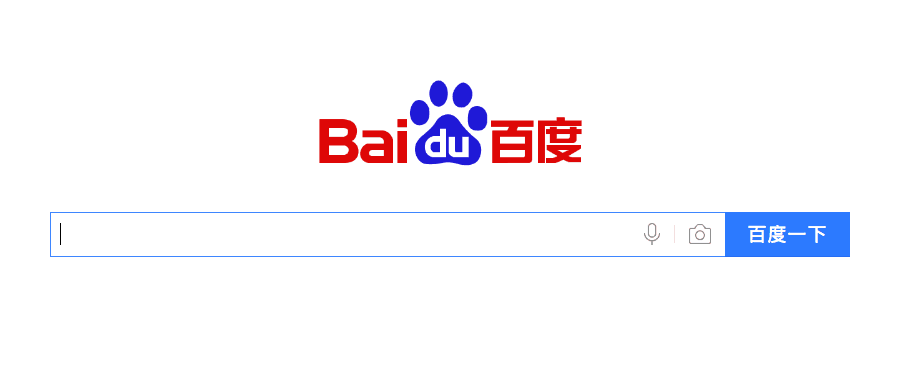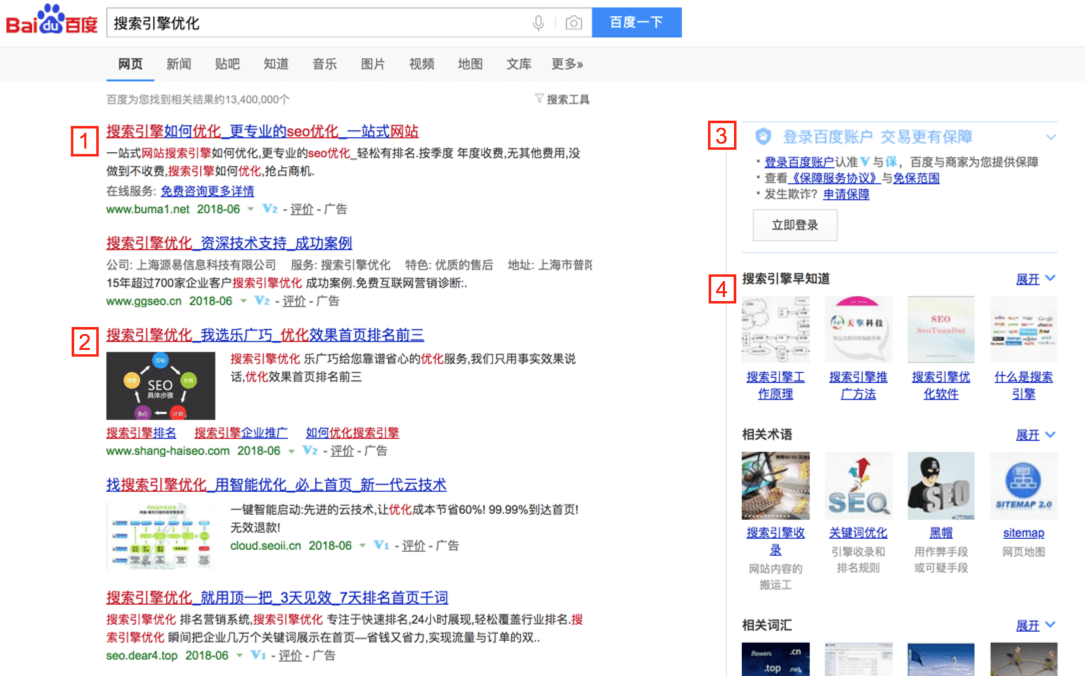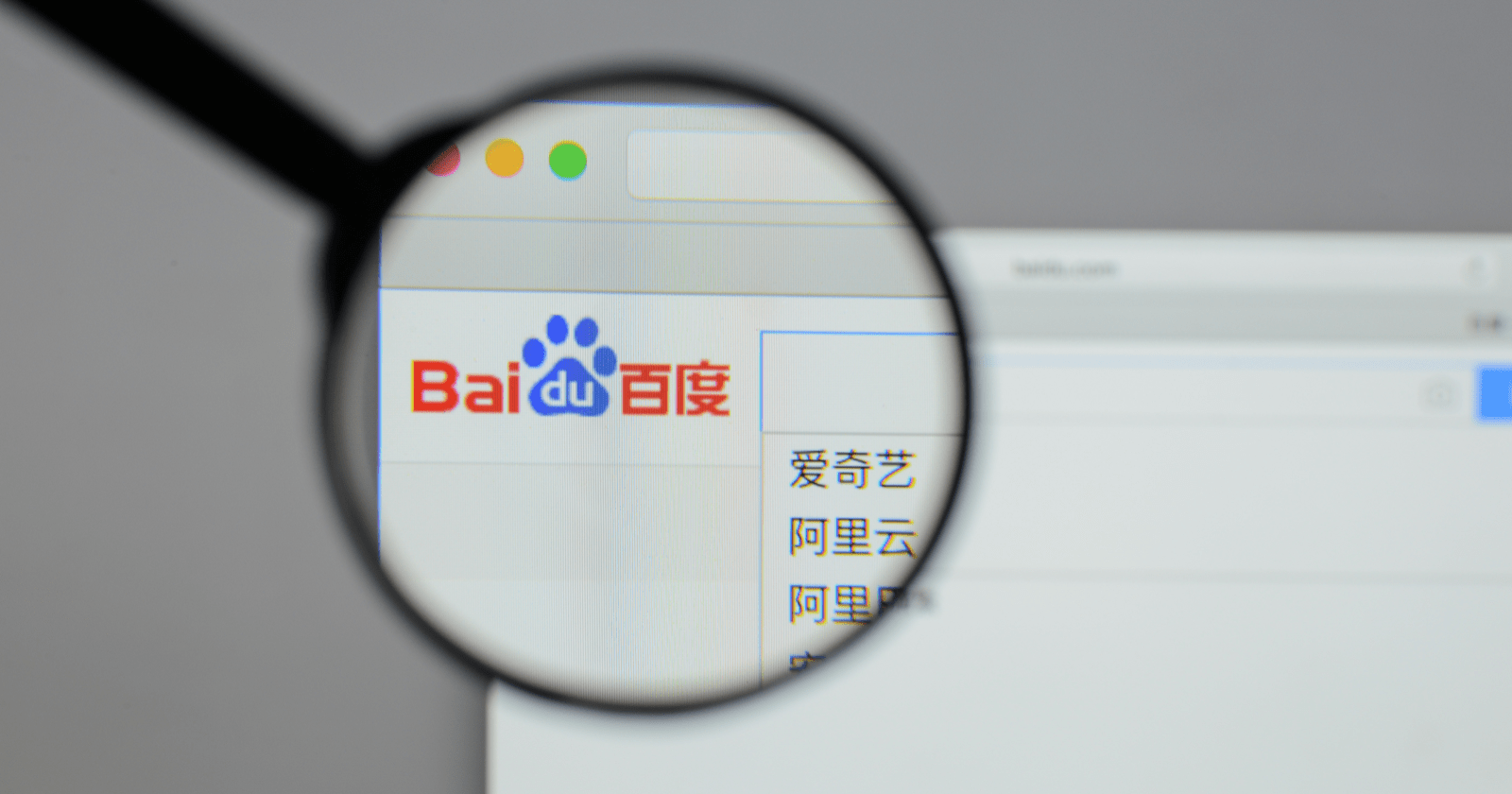With a population little short of 1.4 billion, China is the most populated country on the planet and boasts more than 640 million internet users. Just for a little context, the entire population of Europe is roughly 750 million.
For those willing to put in the time and effort into launching a successful digital marketing campaign into China, the rewards can be plentiful and shouldn’t be ignored.

China, however, can be a complex market to enter due to the number of cultural, behavioral, and language differences, before we even consider that Baidu is the major search engine (Google exited the market in 2010) and that the Chinese government practices internet censorship.
Baidu also has a large number of additional SERP features, meaning getting in front of Chinese users is more complicated than just optimizing your website and building backlinks.
An Introduction to Chinese Search
Baidu does, however, share a number of similarities with Google, that also help us understand Chinese user behavior (to an extent).
Active Searchers
It’s estimated that Google handles 3.5 billion queries per day globally. In comparison to Baidu, which handles 3.3 billion queries per day.
While we tend to associate Baidu solely with China, due to the movement of labor from China to other countries, Baidu receives traffic from more than 100 countries.
About 93 percent of usage does come from China, however Baidu handles a comparative amount of queries each day as Google globally.
This indicates to me that the Baidu searcher is either:
- More active in searching different queries, or…
- More investigative in starting with an initial search term and performing multiple “elimination” searches to get to a more specific answer.
Mobile Is Important
We all know that Google sees the future as mobile, and this has been the case for a long time.
In 2015, Google announced that mobile search had overtaken desktop search.
Similarly, in the same year, Baidu reported that mobile revenue equated 50 percent of total revenue in the first quarter (up from 42 percent at the end of 2014).
Recent trends however have shown that a newer player in the Chinese market, Shenma, is slowly taking mobile market share off of Baidu. The Alibaba owned Shenma isn’t the only competitor to Baidu’s mobile throne.
Tencent (which sounds familiar because they bought 12 percent of Snapchat in 2017) has also been investing in their search platform Sogou (5 percent of the mobile search market) and their mobile web browser QQ (11 percent of the mobile web browser market).
Understanding the Baidu SERP
Baidu’s search results pages differ greatly from Google’s in terms of content but have a lot of similarities in terms of layout.
For example, if you search for SEO within Baidu (搜索引擎优化), this is a typical SERP layout:

As you can see it adopts the two column layout and, similar to Google, consists of:
- Organic results.
- Articles.
- A related search/people also searched for section.
- Related topics.
Special SERP Features
Baidu as a service offers around 60 different SERP features and products, including:
- Baidu Baike (Encyclopaedia).
- Baidu Space (a social network).
- Baidu Patent Search.
- Qunar2 (a travel booking system).
- A specialized online search for the visually impaired.
Baidu Baike
Literally meaning Baidu Encyclopaedia, for all intents and purposes we can infer that Baike is the Baidu equivalent of Wikipedia.
It contains little more than 15-million articles (all complying with Chinese government censorship).
These can usually be identified easily within search results as they use the URL path baike.baidu.com/*.
Baidu Wenku
Wenku falls into the category of UGC-based Knowledge Products, as does Baike and Zhidao.
Originally launched in 2009, Wenku was a portal for members to upload and share files, and online versions of books for free.
However, the platform was open to abuse and became a host for pirated content.
As of this writing, Wenku is home to 223,636,659 uploaded documents.
Baidu Tieba
Meaning “paste bar,” Tieba is a social interaction platform and makes up approximately 10 percent of all Baidu traffic.
Users input a topic into the search bar, and they can then view other peoples ideas on a specific topic (think of this as a version of Reddit).
Latest estimates from 2014 show that there are more than 8 million “bars,” ranging from films and popular culture to politics and sports.
Baidu Zhidao
Zhidao is a question-and-answer-based platform, similar to Yahoo Answers and Quora.
It relies on user-generated content and is moderated, with any content relating to pornography, commercial advertisements, or direct personal attacks removed.
The platform is gamified. Users are rewarded with “credits” when they answer questions posted by other registered users.
Baidu Jingyan
Baidu Experiences is a feature similar to Zhidao.
Users can share their experiences and knowledge on how to perform a specific task or solve a problem, as well as sharing a full account and “how to,” without answering a very specific question.
Baidu Weigou
Weigou acts as an e-commerce “middleman” platform, connecting users with specific product vendors.
Likewise, Baidu also produces product listings for users through its Aladdin and Temai features.
Baidu Fanyi
Baidu Fanyi provides instant free multilingual text translation and webpage translation services.
It supports 28 kinds of popular languages such as Chinese, English, Japanese, Korean, Thai, French, Spanish, and German, and covers 756 translation directions.
Other noteworthy (and useful to the SEO) Baidu products include:
- Zhishu (Baidu Index – a free tool)
- Tuiguang (a PPC keyword research tool)
- Feng Yun Bang (Breaks down popular keywords by location and category)
Trust & Authority Factors
Chinese consumers are known to show favoritism and tend to trust larger and more renowned companies in comparison to smaller outfits offering the same product/service.
This trust of larger companies can also overcome pricing differences if the smaller business is cheaper.
Baidu has acknowledged this within its SERPs and displays an icon on each result representing the “trust factor” of the company result:
![]()
Sites that are linked to from popular, trusted websites are sought after for ranking in Google, and likewise, Baidu takes this one step further and makes the assumption that if reputable site X links to business website Y, then there is also a trust element passed, as well as link equity.
Ratings are displayed within Baidu as either a V1, V2, or V3.
| Grade | Meaning |
| V1 | Trust score of 0 – 40 |
| V2 | Trust score of 41 – 90 |
| V3 | Trust score of 91+ |
Baidu Algorithms & Ranking Signals
Since launching in 2000, Baidu hasn’t been as public in announcing and naming their algorithm updates.
For a long time, methods and techniques we consider to be “black hat” (spammy link building and high-quantity, low-quality content namely) were powerful techniques in ranking well.
In 2013, Baidu did, however, announce two algorithms designed to tackle to two main spam issues.
These were Money Plant (绿萝) and Pomegranate (石榴).
Money Plant (绿萝)
The Money Plant algorithm can be compared to Google’s Penguin and Yandex‘s Minusinsk algorithms.
Designed to lessen the signals and power of link-based spam, link farms, private blog networks (PBNs), and public link trading platforms.
Pomegranate (石榴)
A lot of people refer to Pomegranate as a version of the Google Panda algorithm, but in reality, it didn’t just tackle low-quality content – it tackled low-quality user experiences.
Pomegranate aimed to lower the rankings of websites that overload users with intrusive and excessive adverts, pop-ups, interstitials, and low-quality content.
Must-Know Technical Factors
You can influence a number of technical factors to improve your ranking potential on Baidu.
There are some commonly known optimization benefits, such as using meta keywords, but below I’ve listed some of the more common issues I’ve come across when helping clients expand into, and perform well in China.
Chinese Hosting & Content Delivery
As Baidu’s primary target audience is the Chinese mainland, data suggests that websites with Chinese hosting perform better within Baidu SERPs. This is due to two things:
- Local Chinese hosting can be seen as a signal that you’re targeting the local Chinese market.
- The “great firewall” can add serious latency to websites loading outside of China.
However, while a lot of SEO professionals recommend that you need to host a website in China, doing so isn’t as easy as it sounds.
Legally, if you want to host a website in China, you need an Internet Content Provider License (ICPL).
There are two types of license:
- An individual license that can only be acquired by providing a state-issued personal identity card (issued by the Chinese state), that allows you to host a personal website.
- A business license that requires full Chinese business registration.
There are also extra requirements, which effectively make it a lot harder for foreign companies to acquire Chinese hosting without setting up as a Chinese company.
While Baidu has never specifically mentioned the ICPL in any of their documentation, in order to have your site verified by Baidu Trust you need an ICPL number (the V1, V2, or V3).
Because of this, it might be more feasible and realistic to look at edge networks, such as Cloudflare’s China network, and serve content from a CDN.
Obviously, you don’t get the ICPL and local hosting benefits, but you do get around the latency added by the firewall.
If you’re already using a CDN for your website that doesn’t have a Chinese network, you can use Chinese-specific CDNs, such as ChinaCache 蓝汛, or the more affordable local options from Baidu, Alibaba, and Tencent.
HTTPS Protocol
While it could be argued that Baidu is a lot more advanced than Google in some respects, they only officially started crawling and indexing HTTPS in 2015, with the crawler then updated further in 2016.
When performing a search for software company Moz in Baidu, it returns the HTTP protocol version of the homepage (with the browser then redirecting you to HTTPS).
However, Baidu counts HTTPS as a ranking signal.
URL Parameters
If you use URL parameters or your ecommerce store’s facetted navigation relies on them, Baidu may have difficulties in processing them – even more so if your URLs contain multiple parameters.
JavaScript & Libraries
Baidu is a lot less likely to process JavaScript than Google, to the point, that in their own literature, they claim that the search engine doesn’t process any content in JavaScript.
As JavaScript usage is increasing, elements such as JS links, language switches, navigational elements, or content tabs can cause issues in China.
Some content uses techniques that Baidu spider cannot parse, such as JS, AJAX, etc. Although users can see rich content, they will still be abandoned by search engines. – Baidu Ziyuan 144
It’s also important that any JavaScript and CSS libraries that are used (such as jQuery or Bootstrap) or other CDN hosted files are hosted from with China itself, as most CDNs (and Google’s CDN) are either blocked or throttled.
There are a number of options to host these files in China, including UpYun JS Library and BootCDN.
Other Considerations
In Baidu’s “SEO College”, they have a section explaining how Baidu-spider crawls (Course 144). At the bottom of the article is a section titled “Which pages cannot be built into the index library,” which loosely translates to:
Actually, most websites on the Internet are not included in Baidu. It’s not that Baidu didn’t find them, but it was filtered before the database was built. What kind of webpage was filtered out at the very beginning?
- Duplicate Content Webpages: Content already available on the Internet, Baidu must not necessarily include it again.
- Short, thin content pages.
- Some content uses techniques that Baidu spider cannot parse, such as JS, AJAX, etc. Although users can see rich content, they will still be abandoned by search engines.
- Webpages that are slow to load may also be treated as empty, short pages. Note that the Ad loading time is counted in the overall load time of the webpage.
- Many webpages whose main body is not prominent will be abandoned at this stage even if they are crawled back.
So from the above, we know that Baidu may not index a page if:
- The content is thin or not high quality.
- The page loads slow (including ads).
- The main body content isn’t prominent.
- The content is in JavaScript.
More International Search Resources:
- The State of Search Engine Marketing in China
- Meet the 7 Most Popular Search Engines in the World
- Subdomain vs. Subdirectory vs. ccTLD: Which Is Best for International SEO
Image Credits
All screenshots taken by author, June 2018





